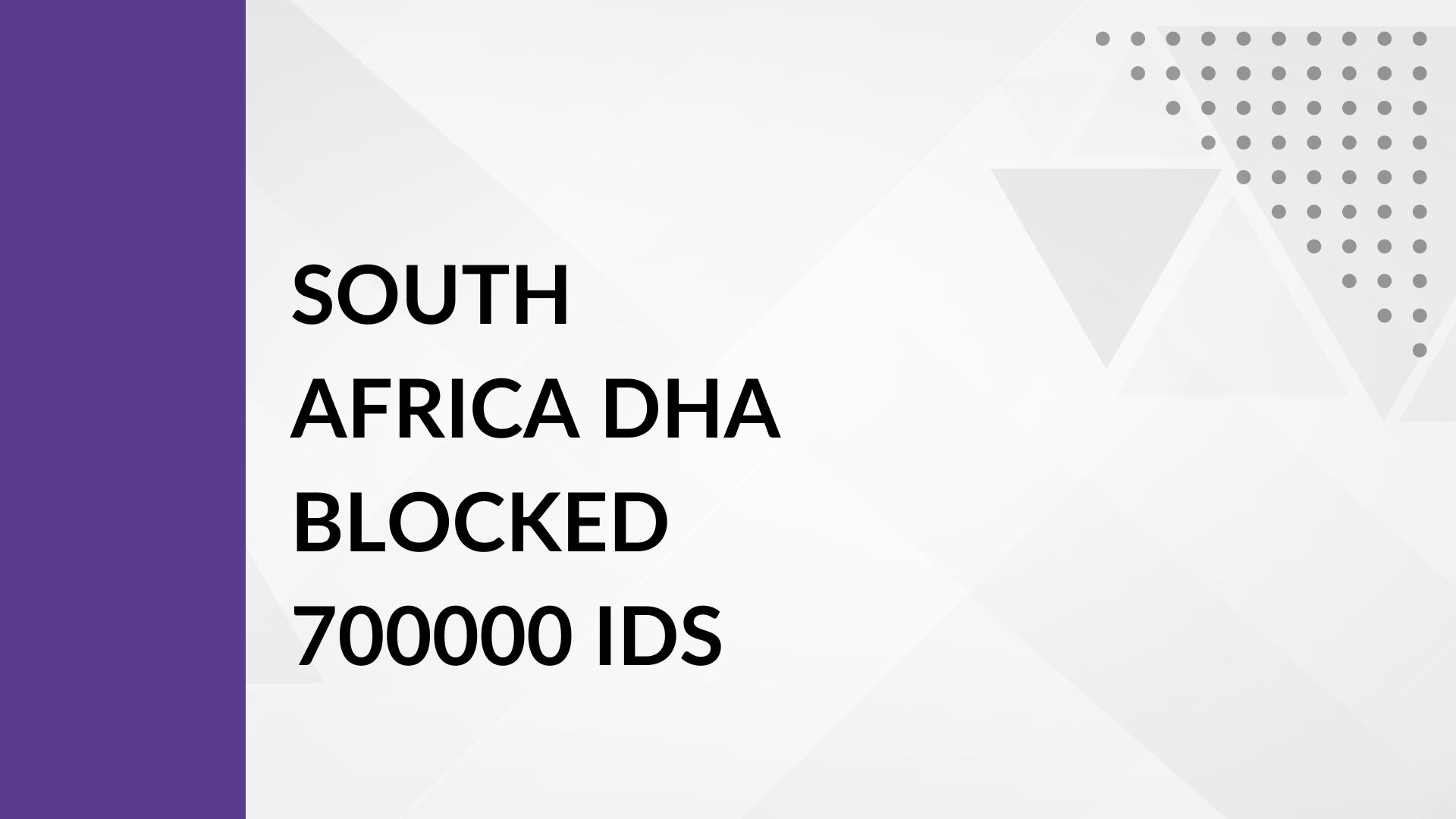South Africa’s Department of Home Affairs (DHA) is currently mired in a major scandal after failing to comply with a court ruling requiring the release of restricted identity documents. This issue, which has touched about 700,000 South Africans, emphasizes the crucial importance of fair administrative systems and the devastating influence that bureaucratic judgments may have on people’s lives.
The Pretoria High Court determined that the DHA blocked these IDs without following the required processes, making their actions illegal. As a result, many South Africans are in legal and existential limbo, unable to execute essential duties such as banking, driver’s license renewals, and passport applications.

Legal Battle and Noncompliance:
The Pretoria High Court recently decided that the DHA’s barring IDs was illegal since it did not follow a proper administrative process. The court judgment demanded that the DHA follow the Promotion of Administrative Justice Act, which compels the department to notify persons when decisions impacting their rights are made. Despite this unambiguous directive, the DHA failed to comply within the 90-day deadline given by the court, which expired last week.
Thandeka Chauke, the head of Lawyers for Human Rights Statelessness Unit, voiced anger with the DHA’s failure to comply. According to Chauke, there has been no communication from the DHA’s legal representatives to explain the delay. This lack of responsiveness has left thousands of people feeling unsettled and distressed.
Impact on Affected Individuals:
The consequences of having a banned ID are vast and highly disruptive. South Africans without proper IDs cannot do critical activities such as banking, renewing driver’s licenses, and acquiring passports. Many people only realize that their IDs are restricted when used for these purposes.
Chauke stated that Lawyers for Human Rights clients were not notified of the reasons for invalidating their IDs, requiring them to examine the matter on their own. This issue demonstrates a severe lack of transparency and accountability by DHA. The human stories behind the restricted IDs portray a bleak picture. Some cases extend back to the early 2000s, and the affected individuals have spent years in bureaucratic limbo.
Moving Forward and Seeking Resolution:
The court’s verdict includes a supervisory order, which allows the court to continue to monitor the DHA’s compliance with the order. Lawyers for Human Rights intends to continue assisting those affected and pressing the DHA to evaluate and change its practices. This includes upholding the ideals of administrative fairness and transparency.
In the interim, the charity has launched a campaign using the hashtag #UnblockMyID to raise awareness and collect testimony from individuals affected. Chauke encourages those dealing with restricted IDs to keep raising awareness and keeping the DHA accountable for its actions. The DHA’s inability to comply with the court order has harmed many South Africans considerably.
